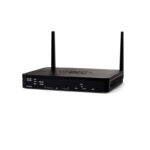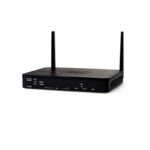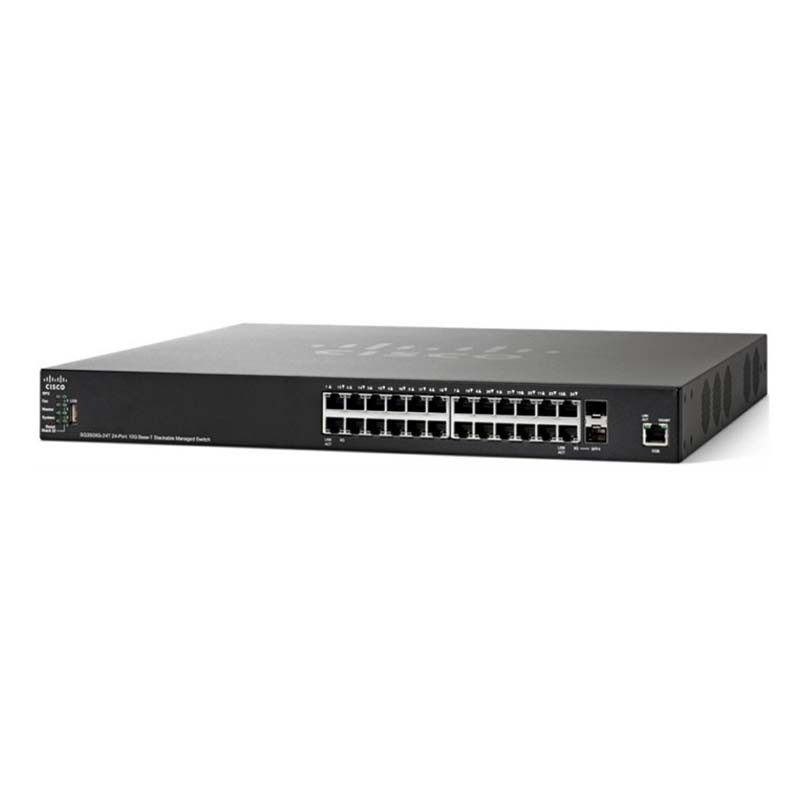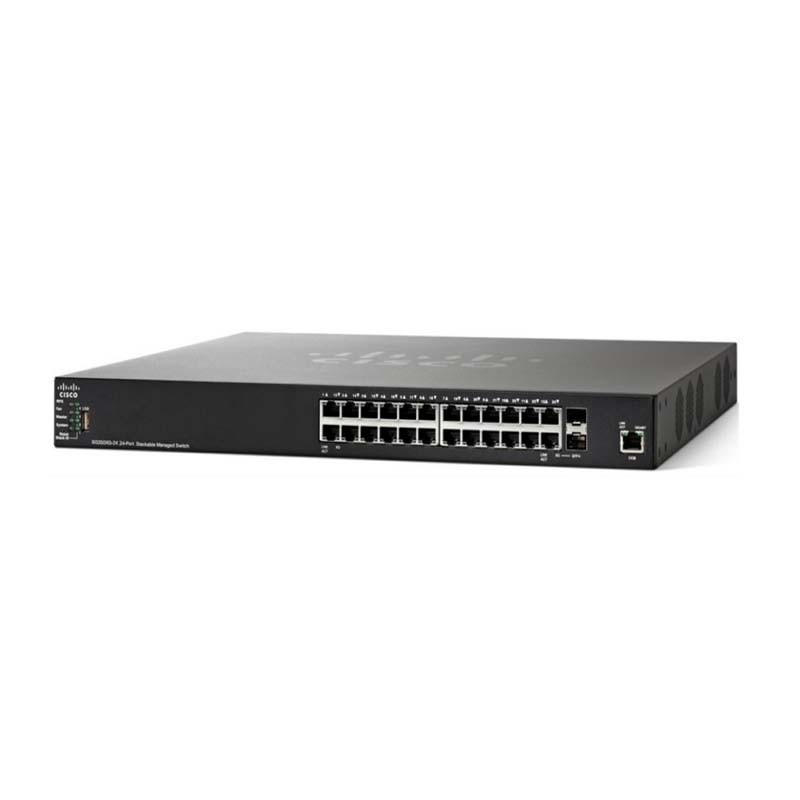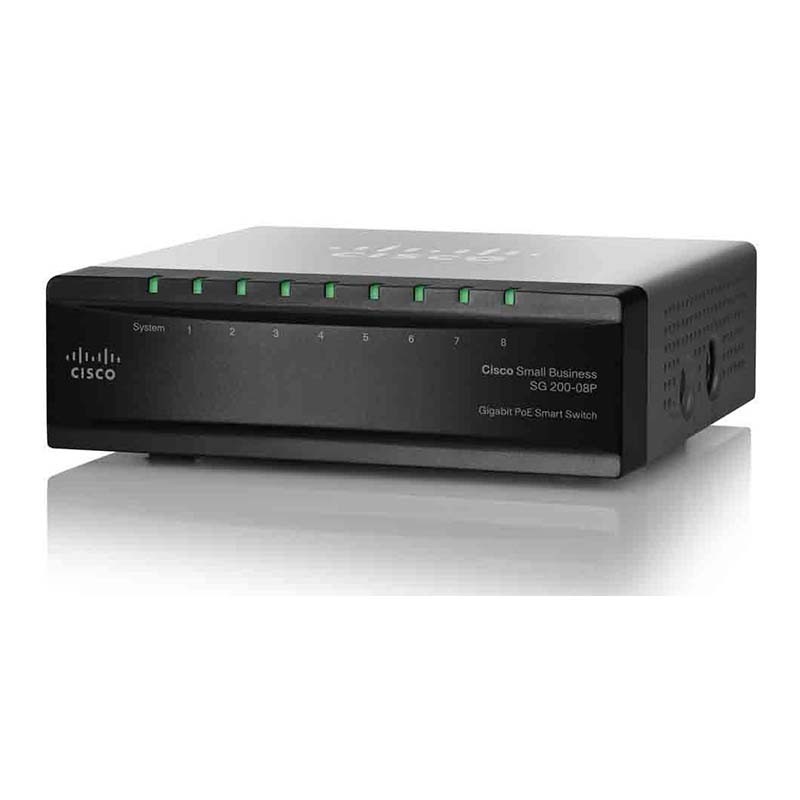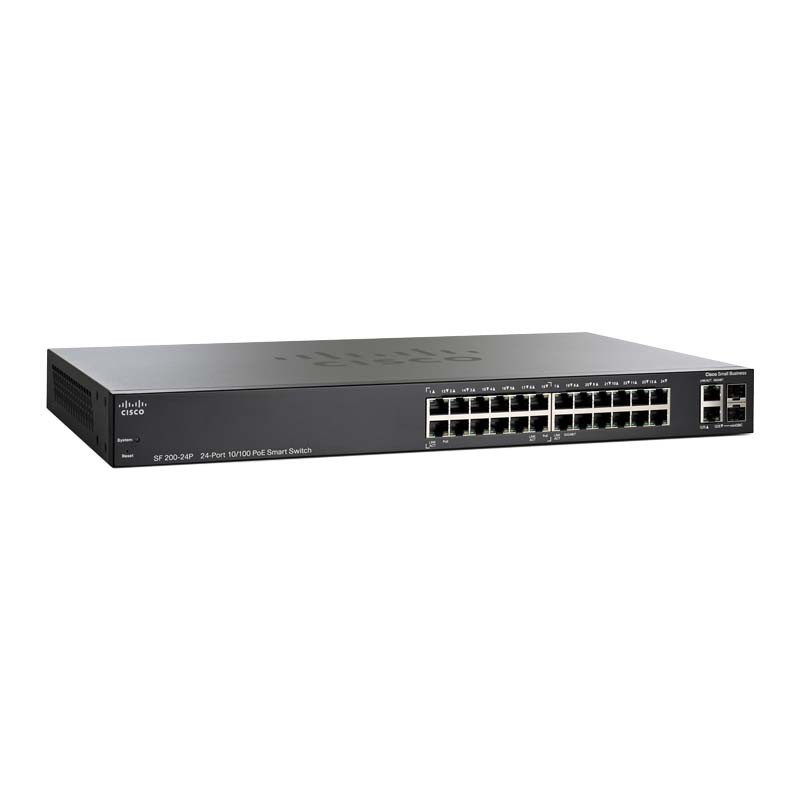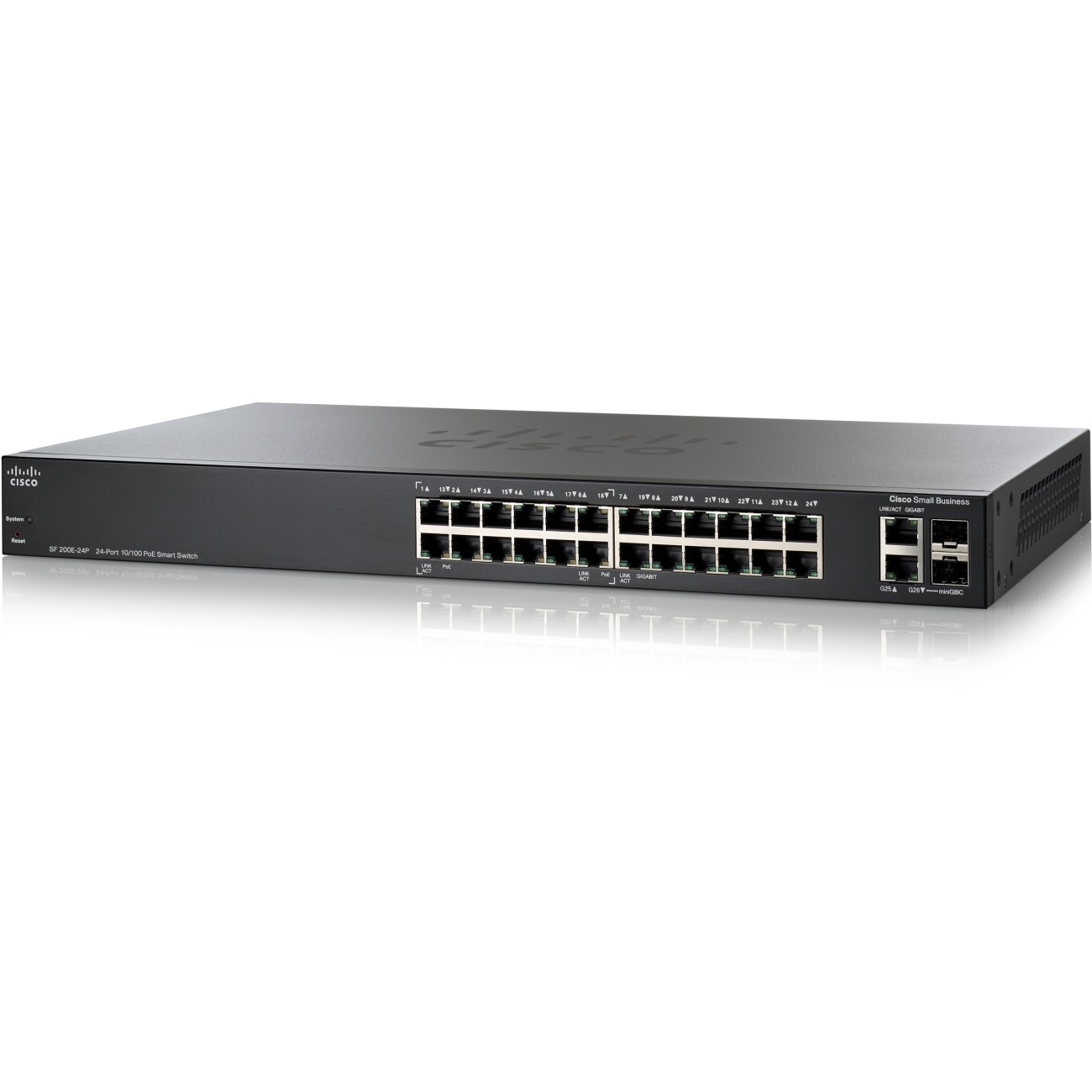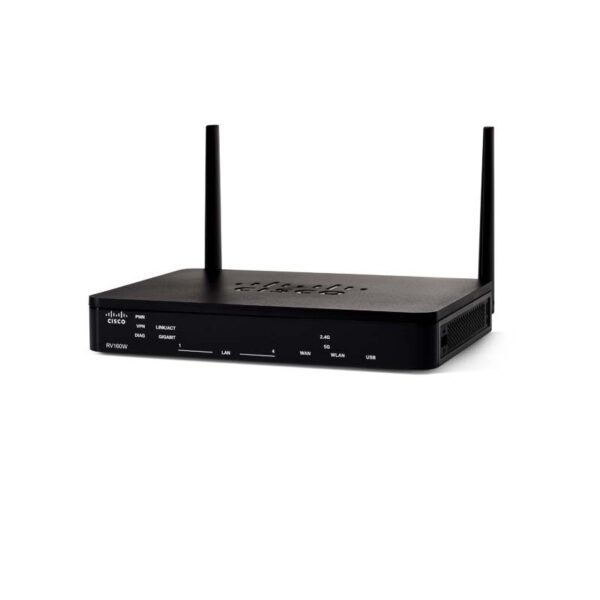
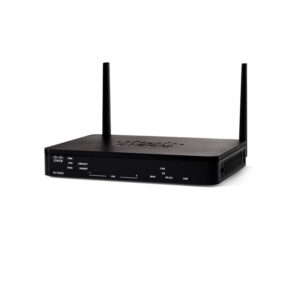
RV160W-E-K9-JP
< tbody >
| Model: | RV160W-E-K9-JP – Cisco RV100 VPN Routers |
| Detail: | Cisco RV160W IEEE 802.11ac Ethernet Wireless Router |
- Description
Description
RV160W-E-K9-JP Specification |
|
| Device Dimension | (L)200x(W)150x(H)30 mm |
| Ethernet WAN | 1 RJ-45 SFP Gigabit Ethernet combination port |
| Ethernet LAN | 4 RJ-45 Gigabit Ethernet ports |
| Console port | 1 RJ-45 port |
| Switch | Power on/off |
| Cabling type | Category 5 or better |
| LEDs | Power, VPN, WAN, LAN |
| Operating system | Linux |
|
LAN |
|
| VLANs | 16 |
| Port security | Yes, 802.1X |
| IPv6 | Dual stack, 6rd, 6in4 |
| WAN
|
Dynamic Host Configuration Protocol (DHCP) client, static IP, Point-to-Point Protocol over Ethernet (PPPoE), PPTP, Layer 2 Tunneling Protocol (L2TP) |
| WLAN | 2×2 wireless 802.11ac (RV160W) |
|
Security |
|
| Firewall
|
SPI firewall |
| Port forwarding and triggering | |
| Denial-of-Service prevention (DoS) | |
| Access control | IP access control lists |
| Secure management | HTTPS, username/password complexity |
| User privileges | Two levels of access: Admin and guest |
|
Network |
|
| Network protocols
|
• Dynamic Host Configuration Protocol (DHCP) server
• Point-to-Point Protocol over Ethernet (PPPoE) • Point-to-Point Tunneling Protocol (PPTP) • Layer 2 Tunneling Protocol (L2TP) • DNS proxy • DHCP relay agent • Internet Group Management Protocol (IGMP) proxy and multicast forwarding • Rapid Spanning Tree Protocol (RSTP) • Dynamic DNS (TZO, DynDNS, 3322.org, No-IP) • Network Address Translation (NAT), Port Address Translation (PAT) • One-to-one NAT • Port management • Port mirroring • Software-configurable DMZ to any LAN IP address • Session Initiation Protocol (SIP) Application-Layer Gateways (ALG) |
| Routing protocols
|
• Static routing, IGMP proxy
• Dynamic routing • Dynamic DNS (ChangeIP, DynDNS, No-IP) • Routing Information Protocol (RIP) v1 and v2 • RIP for IPv6 (RIPng) • Inter-VLAN routing |
| NAT protocol
|
Port Address Translation (PAT), Network Address Port Translation (NAPT)
Policy NAT Port forwarding, one-to-one NAT, VPN NAT Traversal, Session Initiation Protocol (SIP), ALG, FTP ALG |
|
VPN |
|
| Gateway-to-gateway IPsec VPN | 10 IPsec tunnels |
| Client-to-gateway IPsec VPN | 10 IPsec tunnels |
| IPsec VPN
|
Internet Key Exchange (IKE) v2, Generic Routing Encapsulation (GRE), hub and spoke supported |
| PPTP VPN | 10 PPTP VPN tunnels |
| OpenVPN | Support for the OpenVPN server |
| Encryption
|
Triple Data Encryption Standard (3DES), Advanced Encryption Standard (AES) with 128, 192, and 256-bit keys encryption |
| VPN pass-through | IPsec, PPTP, and L2TP pass-through |
|
Quality of Service (QoS) |
|
| QoS
|
• 802.1p port-based priority on LAN port, application-based priority on WAN port
• 4 queues • Differentiated Services Code Point (DSCP) support • Class of service (CoS) • Bandwidth management for service prioritization |
| Jumbo frame support
|
Supports jumbo frames on Gigabit ports – at least 1536B |
|
Performance |
|
| NAT throughput | 600 Mbps |
| Concurrent sessions | 15,000 |
| IPsec VPN throughput | 50 Mbps |
|
Configuration |
|
| Web-based user interface | Browser-based configuration (HTTP/HTTPS) |
| Management
|
Web-based user interface, Simple Network Management Protocol (SNMP) v3, Bonjour, Universal Plug and Play (PnP) |
| FindIT support for monitoring and management | |
| Event logging | Local, syslog, email alerts |
| Network diagnostics | Ping, traceroute, DNS lookup |
| Upgradability
|
Firmware upgradable via browser UI, imported/exported file, USB, Cisco FindIT |
| System time | Network Time Protocol (NTP), Daylight Savings, manual entry |
| Language support | User interface support: English |
|
Environmental |
|
| Power | 12VDC/2A |
| Operating temperature | 0° to 40 °C (32° to 104 °F) |
| Storage temperature | -20° to 70 °C (-4° to 158 °F) |
| Operating humidity | 10% to 85% noncondensing |
| Storage humidity | 5% to 90% noncondensing |
| Certifications
|
Safety:
• UL 60950-1 • CAN/CSA-C22.2 No. 60950-1 • IEC 60950-1 • EN 60950-1 Radio approvals: • FCC Part 15.247, 15.407 • RSS-210 (Canada) • EN 300.328, EN 301.893 (Europe) • AS/NZS 4268.2003 (Australia and New Zealand) EMI and susceptibility (Class B): • FCC Part 15.107 and 15.109 • ICES-003 (Canada) • EN 301.489-1 and -17 (Europe) |


